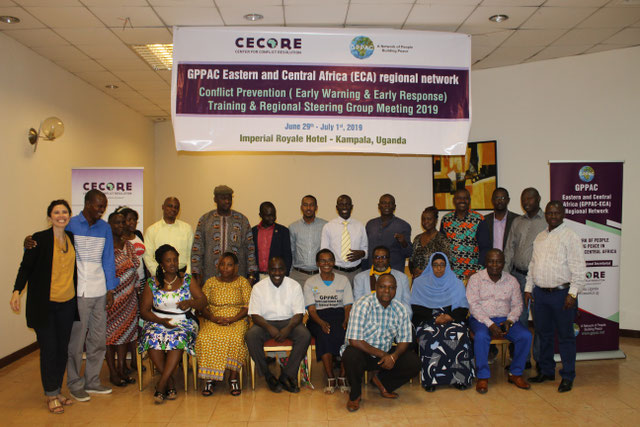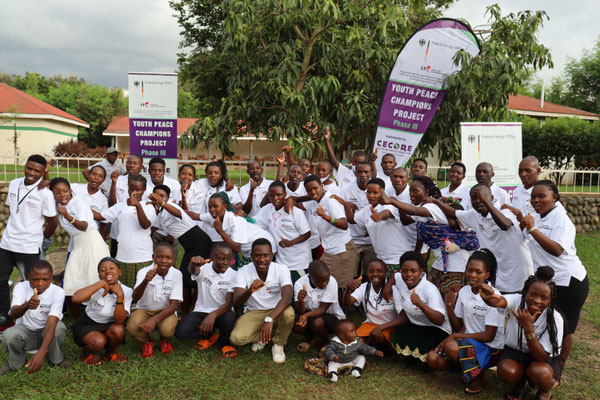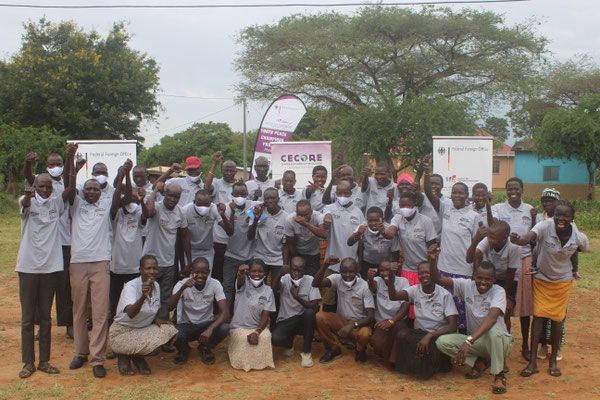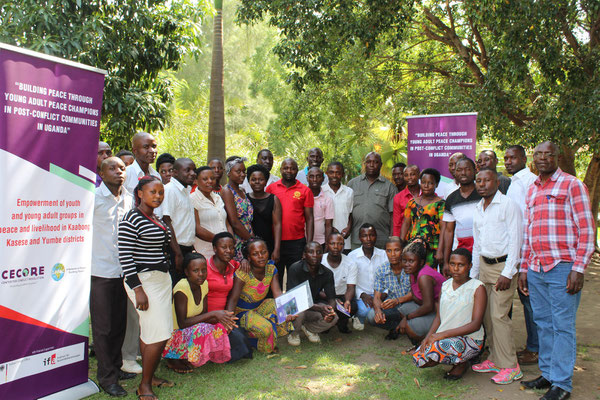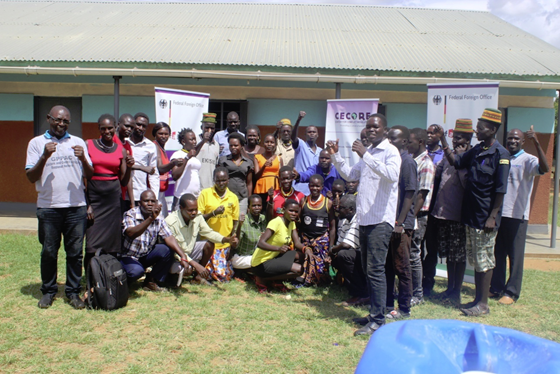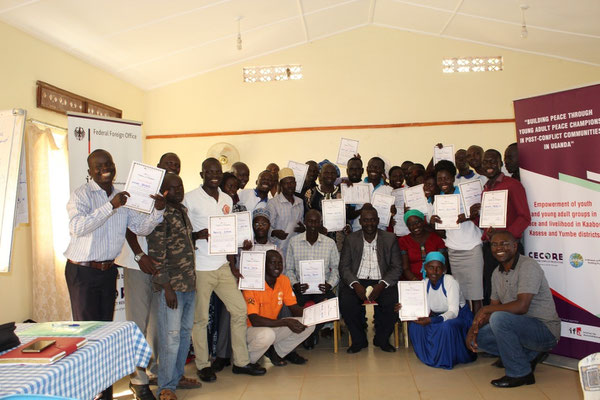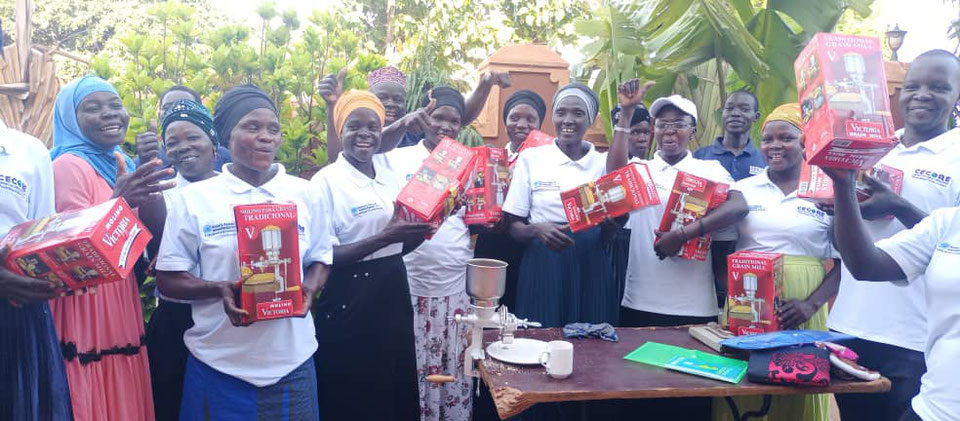Building Local Resilience & Preventing Climate-related Violence
Climate & Conflict
Strengthening community capacities to identify, prevent and mediate climate-driven security risks through locally led approaches and peace infrastructures.
Climate change is reshaping livelihoods and local power dynamics across Uganda and the ECA region – increasing competition over water, pasture and land. CECORE helps communities transform climate-related tensions into opportunities for cooperation by linking local knowledge with practical conflict-sensitive tools and regional policy engagement.
Why this matters?
Climate shocks and slow-onset changes (droughts, changing rainfall patterns, and resource scarcity) amplify existing social and economic vulnerabilities. When natural resources become scarce or unpredictable, local disputes can escalate into violent incidents, displacing families and undermining development.
CECORE’s work recognises that technical climate responses must be conflict-sensitive and locally led. Addressing the social drivers of climate insecurity – access to land, intercommunal relations, livelihoods and marginalisation, reduces the risk of violence and helps communities adapt more sustainably.
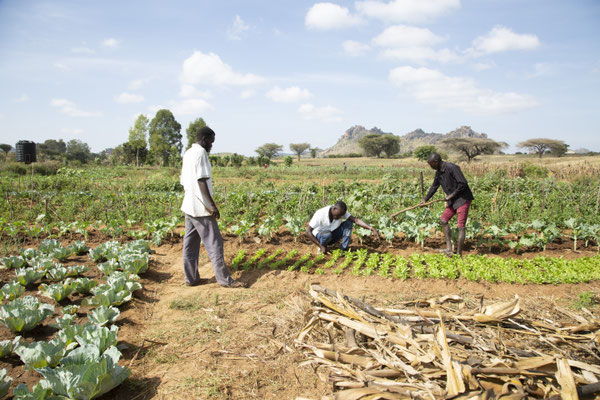
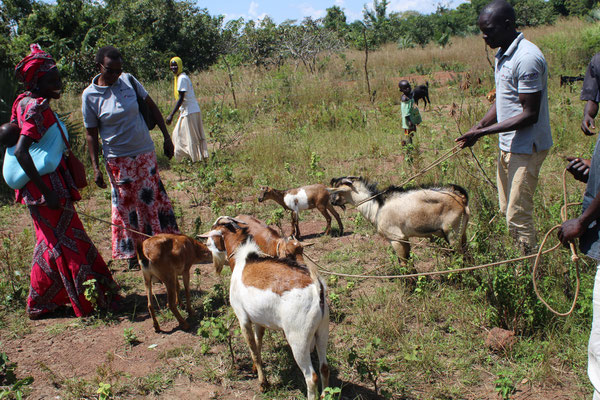
CECORE’s approach
We combine community-level practice with policy engagement to prevent climate-related conflict:
Localise climate security analysis – participatory risk assessments that surface local drivers and dynamics.
Strengthen Local Infrastructures for Peace – support existing community structures (elders, women’s groups, youth networks) to prevent and mediate disputes.
Design conflict-sensitive adaptation – ensure climate interventions (water, energy, livelihoods) reduce rather than increase tensions.
Connect local learning with policy – feed evidence into district, national and regional policy spaces to shape more realistic peacebuilding and adaptation strategies.
Ongoing & flagship activities
Kaabong Pilot – Localising Climate Security
Participatory climate-security assessment, community dialogue, and a practical Step-by-Step Guide that local peacebuilders can use to identify, prioritise and respond to climate-related security risks.Community Conflict Monitoring & Early Warning
Training of local focal points and youth Peace Champions to monitor tensions around water, pasture and land and trigger non-violent mediation before escalation.Livelihoods & Connectors for Peace
Small grants and livelihoods support (e.g., climate-resilient farming, alternative income activities) targeted at vulnerable youth and women to reduce resource pressure and create incentives for cooperation.Capacity Building & Tools
Training modules, facilitation guides and a case study package to help NGOs, district officials and community leaders implement conflict-sensitive climate programming.Policy Engagement & Regional Learning
Share lessons with GPPAC-ECA, UNDP and district governments to influence policy and scale proven local approaches.
Expected results / indicators
Strengthened local mechanisms to mediate climate-related disputes (e.g., trained Local Infrastructure for Peace committees in targeted districts).
Reduced incidence or intensity of resource-based clashes between communities in pilot areas (monitored through community reporting).
Increased uptake of conflict-sensitive practices by district planners and NGOs (evidence: adoption of guides, integration into local plans).
Improved livelihoods and climate resilience among targeted households (e.g., adoption of climate-resilient practices and diversified income).
Knowledge products produced and disseminated (Step-by-Step Guide, case studies, baseline summaries).
Case study (Kaabong pilot)
Kaabong climate-conflict pilot (Karamoja): In Kaabong, CECORE used a participatory climate security assessment to map local stressors (water scarcity, pasture loss and migration). The pilot combined community dialogues, training of local Peace Champions and a practical Step-by-Step Guide for peacebuilders. This approach helped stakeholders co-design non-violent coping strategies and informed district-level planning on climate and peace.
Now, it’s your turn.
You’ve seen the impact. You’ve heard the stories. Now, it’s your turn to take action. Whether it’s giving your time, sharing your voice, or making a donation, you have the power to create real change.
FAQ’s
Climate security examines how climate change and environmental stress interact with social, economic and political factors to create security risks – e.g., resource competition that can trigger conflict.
CECORE pilots and programs have operated in districts such as Kaabong (Karamoja) and in partnership across the GPPAC-ECA network; activities are linked to district and regional policy dialogue.
Download training modules, the Step-by-Step Guide and case studies from the Resources section on this page or contact CECORE for tailored support.
